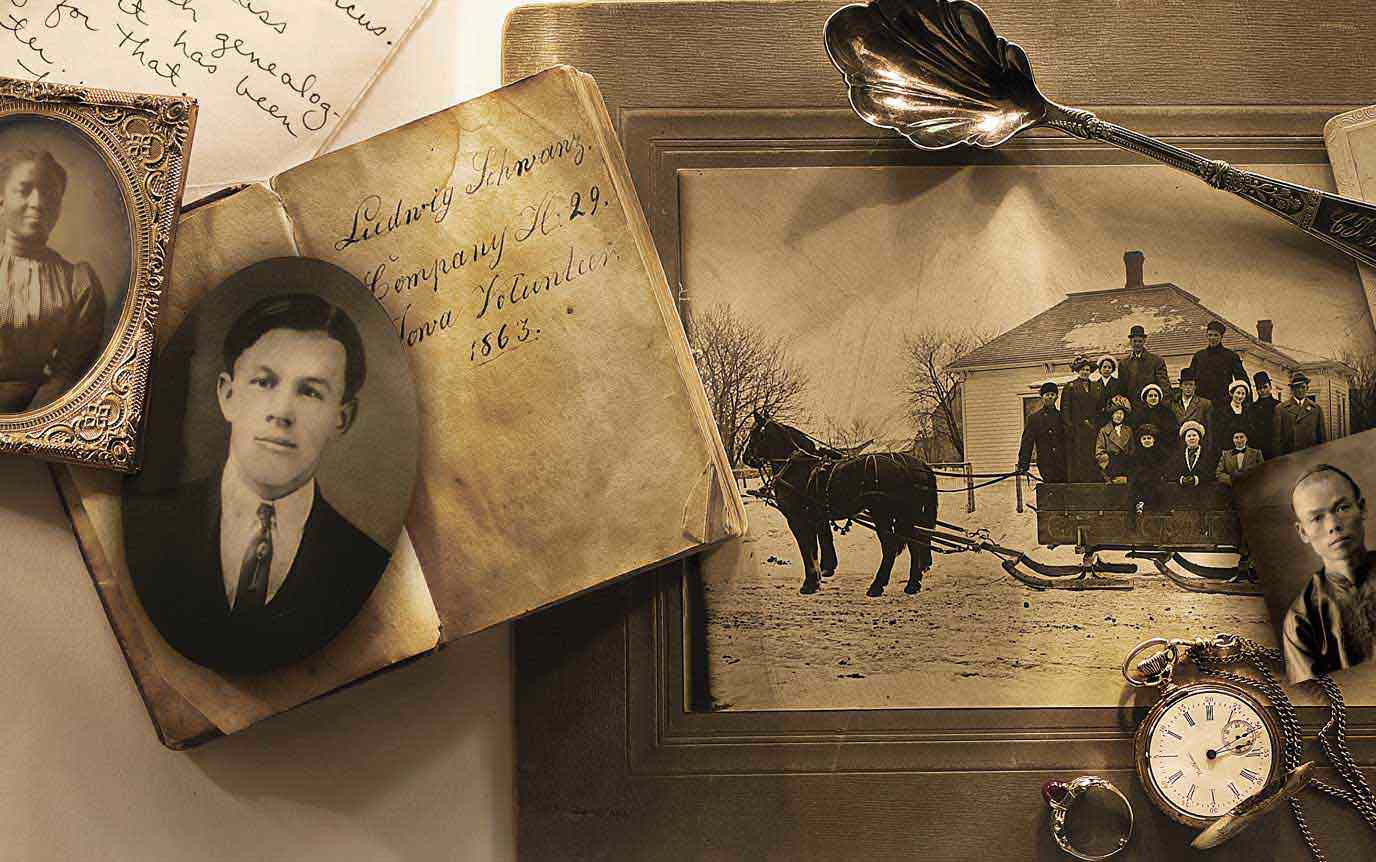Genealogy research is a fascinating journey that allows us to uncover the stories and connections of our ancestors. It provides a window into the past, enabling us to understand our family history and heritage. However, genealogy research can sometimes seem like a daunting task, with countless records, archives, and resources to navigate. Fear not! In this article, we will explore the world of genealogy research and provide you with practical tips and techniques to make the process easier and more enjoyable.
Getting Started with Genealogy Research
To embark on your genealogy journey, it’s important to start with what you already know. Here are some steps to help you get started:
- Begin with yourself:
Gather as much information as possible about yourself and your immediate family members. Note down birth dates, marriage dates, and any other relevant details. This will serve as a foundation for your research.
- Interview relatives:
Reach out to your older relatives and conduct interviews to gather family stories, memories, and any available documents or photographs. This firsthand information can provide valuable clues and insights into your family history.
Exploring Online Genealogy Resources
The internet has revolutionized the field of genealogy research, making it easier than ever to access records and connect with other researchers. Here are some online resources to explore:
- Genealogy websites:
Platforms like Ancestry.com, MyHeritage, and FamilySearch offer extensive databases of historical records, family trees, and community forums. These websites can be invaluable in finding census records, birth and death certificates, immigration records, and more.
- Social media groups:
Join genealogy-focused groups on platforms like Facebook and Reddit. These communities are filled with passionate researchers who are often willing to share tips, and advice, and even collaborate on specific family lines or regions.
- DNA testing:
Consider taking a DNA test through companies like 23andMe or AncestryDNA. These tests can provide you with ethnicity estimates, DNA matches with potential relatives, and even help break through brick walls in your research.
Visiting Local Archives and Libraries
While online resources are incredibly useful, don’t underestimate the value of visiting local archives and libraries. Here’s why:
- Unique records:
Local archives and libraries house collections of historical documents, newspapers, photographs, and local histories that may not be available online. These resources can provide valuable context and details about your ancestors.
- Expert guidance:
Librarians and archivists are often well-versed in genealogy research and can provide guidance on using their collections effectively. They may also be aware of specific resources or records that can be particularly useful for your research.
- Local connections:
By visiting the area where your ancestors lived, you can establish connections with local historians, genealogical societies, and even distant relatives who may have valuable information or insights to share.
Organizing and Documenting Your Findings
As you delve deeper into your genealogy research, it’s crucial to organize and document your findings to avoid confusion and keep track of your progress. Here are some tips to help you stay organized:
- Genealogy software:
Consider using dedicated genealogy software like Legacy Family Tree, Gramps, or Family Tree Maker. These tools allow you to create and manage family trees, attach documents and photos, and track your research progress.
- Digital filing system:
Create a structured digital filing system to store digital copies of records, photos, and notes. Organize your files by surname, location, or specific individuals to make retrieval easier.
- Source citations:
Always document the sources of your information. Include relevant details such as the repository or website where you found the information, the date accessed, and any unique identifiers.
- Research logs:
Maintain a research log to track the sources you have explored, the information you have found, and the next steps you plan to take. This will help you stay focused and avoid duplicating efforts.
- Note-taking:
Develop a consistent method for taking notes during your research. Be sure to include relevant details such as names, dates, locations, and any observations or questions that arise. This will make it easier to analyze and analyze the information later.
Overcoming Challenges in Genealogy Research
Genealogy research can sometimes present challenges and roadblocks along the way. Here are some common obstacles and strategies to overcome them:
- Missing records:
It’s not uncommon to encounter missing or incomplete records, especially for older generations. In such cases, explore alternative sources like church records, local newspapers, or even oral histories passed down through generations.
- Name variations and spelling:
Ancestors’ names may be spelled differently or have variations across different records. Be flexible and try different spelling variations and phonetic searches when searching for elusive ancestors.
- Brick walls:
At some point, you may hit a brick wall where progress seems impossible. When faced with a brick wall, take a step back, reassess your research, seek advice from fellow researchers, and consider alternative approaches. Sometimes, fresh eyes or new perspectives can help break through these barriers.
Collaborating and Sharing with Others
Genealogy research is often a collaborative effort. Engaging with others who share similar interests can enhance your research experience and lead to new discoveries. Here’s how you can collaborate and share with fellow genealogists:
- Join local societies:
Participate in genealogical societies or historical societies in your area. Attend meetings, workshops, and conferences where you can connect with like-minded individuals, learn from experts, and share your own findings.
- Online forums and message boards:
Engage in genealogy forums and message boards to connect with researchers who are focused on similar regions or surnames. Share your queries, knowledge, and resources while benefiting from the collective wisdom of the community.
- Collaborative family trees:
Consider collaborating on family trees with distant relatives or other researchers who are working on the same lineage. Online platforms like FamilySearch and Geni allow multiple contributors to work together on a shared family tree, combining efforts and knowledge.
Conclusion
Genealogy research is a captivating endeavor that allows us to connect with our roots and uncover the stories of our ancestors. By following the steps outlined in this article, utilizing online and offline resources, and embracing collaboration, you can make the process of genealogy research easier and more rewarding. Remember to start with what you know, explore diverse sources, stay organized, overcome challenges, and connect with fellow researchers. So, embark on your genealogy journey today and unlock the past, one ancestor at a time.












